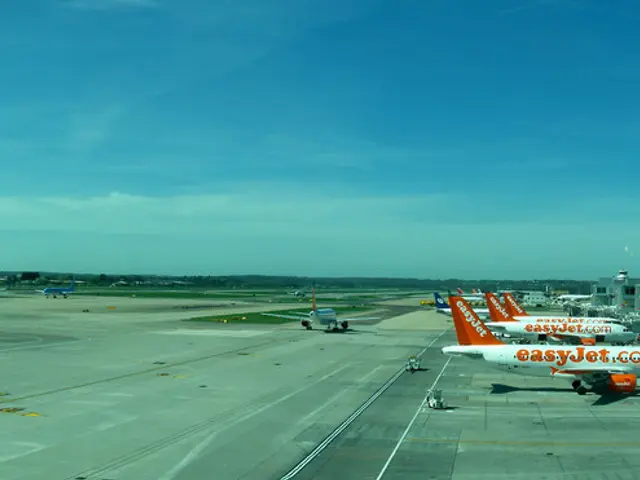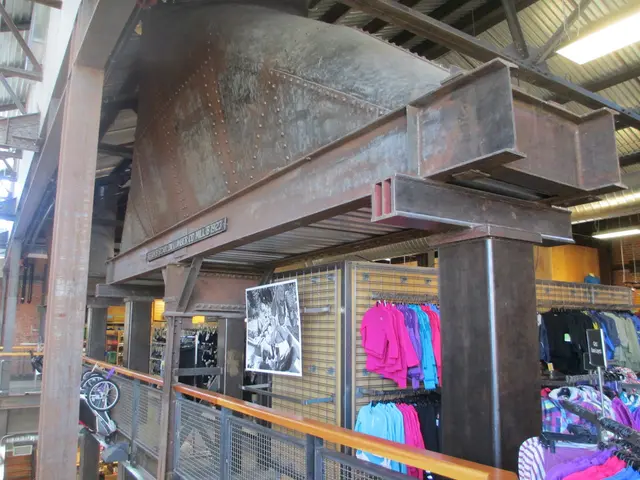Streetcar Chaos: Toronto's Summer of problems
Summer's approach brings impending turmoil to streetcar traffic, and TTC commuters express disapproval: "Is this the optimal strategy?"
In a move that'll leave more than 100,000 streetcar commuters in a pickle, the TTC is set to reshuffle three heavily-used routes onto a single stretch of Queen Street due to construction, causing dreaded delays and diversions.
Kelly Ronan, a daily streetcar rider from The Beaches, can't help but feel exasperated when she hears about the impending congestion. With over triple the number of streetcars expected on the same section of track during peak hours, she muses if this is the best plan.
"It's easy to question their decision-making," says Ronan, frustrated by the potential traffic snarls on her commute from The Beaches to her job on Bay Street.
Starting May 11, the 503 Kingston Road, 504 King, and the 508 Lake Shore streetcars will make their way onto Queen Street, between Spadina Avenue and Broadview Avenue, due to water main and streetcar track maintenance. The 508 will then be redirected again onto Richmond and Adelaide Streets, between York and Church Streets. During the time, the 504B replacement bus will divert onto Jarvis Street, Front, Wellington Streets, and Yonge Street.
The diversions are expected to last through August, or until construction at the intersection of King and Church Streets is finished. To avoid a gridlock, the city plans to deploy parking and traffic enforcement to help keep traffic corridors clear, preventing a collision of streetcars.
To accommodate all these changes, the eastbound lane on Queen Street, from Hamilton Street to Broadview Avenue, will be reserved for public transit only. Left turns off Queen Street will also be restricted throughout the day from Spadina Avenue to Jarvis Street. Parking restrictions and new no stopping zones will be implemented on Queen Street, from Spadina to River Street, and on Richmond and Adelaide Streets, between York to Church Streets.
Ronan, a regular 501 Queen rider, dreads the idea of a longer commute, which at its worst, already takes an hour and a half. She acknowledges that maintenance and construction are part of the city's essential workings but feels quite disappointed when streetcar traffic slows to a crawl on her Route.
TTC spokesperson Stuart Green claims the traffic management measures approved by the city are designed to keep the impact on riders "to a minimum." Green insists that the City needs to consider numerous competing interests, such as emergency vehicles, cars, bikes, and neighborhood concerns, and balance them accordingly.
David Cooper, a transit planning consultant at Leading Mobility who previously worked as a transportation planner for the city, feels that the TTC and the city might not be optimizing the opportunities presented by these major disruptions. Cooper cites cities like Berlin, Frankfurt, Paris, and Cologne, where similar streetcars run on the streets but have higher priority at intersections and dedicated right-of-ways, as examples of how Toronto could modernize its streetcar network.
Toronto currently employs several strategies to streamline streetcar infrastructure and minimize construction-related interruptions, including infrastructure upgrades, route diversions and bus services, a congestion management plan, and comprehensive communication and planning efforts. Nevertheless, Toronto might not be leveraging its infrastructure to its fullest potential, as Cooper suggests, to compete with cities such as Berlin, Frankfurt, Paris, and Cologne.
All in all, Toronto's strategy is built around technology integration, city-wide construction coordination, and engagement with the public to decrease the impact of construction. Comparatively, cities like Berlin and Paris tend to concentrate on phased construction and alternative modes of transport. The city's approach could be improved by dedicating more resources to strategize and prioritize transit infrastructure.
- In Canada, Toronto's media outlets are likely to cover the ongoing problems with the city's streetcar system, as the TTC's decision to reshuffle three routes onto a single stretch of Queen Street is causing concerns for commuters like Kelly Ronan.
- During the summer, the finance industry in Toronto might experience some delays as more than 100,000 streetcar commuters could be affected by the congestion caused by this construction project.
- The political industry could face criticism due to the impact of the streetcar chaos on Toronto's transportation system, as the TTC and city planners are forced to deploy traffic management measures to prevent a gridlock.
- The media industry in Canada, particularly in Toronto, may find opportunities to report on potential solutions for the city's streetcar network, as transit planning consultants suggest that cities like Berlin, Frankfurt, Paris, and Cologne offer examples of how Toronto could modernize its streetcar network for better efficiency.








